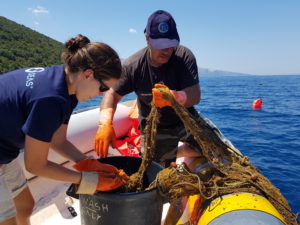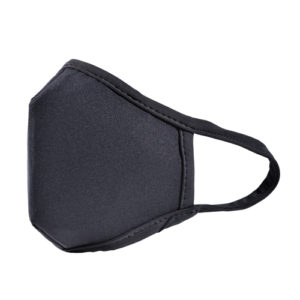
 Waste fishing nets are being turned into eco-friendly facemasks in a bid to end mask trash and help protect the oceans.
Waste fishing nets are being turned into eco-friendly facemasks in a bid to end mask trash and help protect the oceans.
The nets, which pose a severe threat to marine life if abandoned or lost at sea, are collected and ultimately regenerated by Aquafil, together with other nylon waste, to produce ECONYL yarn, used in a variety of sustainable products, like the Ecomask face masks.
Said to be the most sustainable face mask on the planet, Ecomask, was born in the summer of 2020 in response to the proliferation of single use personal protective equipment related to COVID-19. Their vision is to make the most sustainable and effective reusable face masks on the market to end mask trash. They vow to do this while maintaining conscious and ethical business practices and by donating 1% of proceeds from all purchases to the Healthy Seas organisation.
“As a global society, we have been faced with an unfair choice in the wake of COVID-19: personal health and social responsibility vs environmental responsibility. Ecomask was founded to create a solution that serves both people and our planet without trade-offs. From the beginning we wanted to use the Ecomask platform to support marine life protection. Incorporating circular practices and fostering transparency are at the heart of everything we do and joining Healthy Seas was a natural fit for us,” said Laura Robichaux, Founder, Ecomask
Healthy Seas is an environmental charity working in various European countries (North, Mediterranean and Adriatic Seas) and in New Zealand (Pacific Ocean), to collect waste fishing nets in collaboration with fishermen and volunteer divers.
“We are happy to see our partners continuously taking steps to fight ocean pollution. This way, we are doing all we can so that protective face masks will one-day become a thing of the past, instead of sticking around in our environment endangering our future,” said Veronika Mikos, Director, Healthy Seas.
On 9th November at 16.00 CEST, Healthy Seas will host a webinar titled “COVID Waste: A New Threat to Oceans”, presented by environmental correspondent Gelareh Darabi. Contact info@healthyseas.org for more information.
